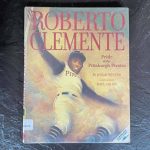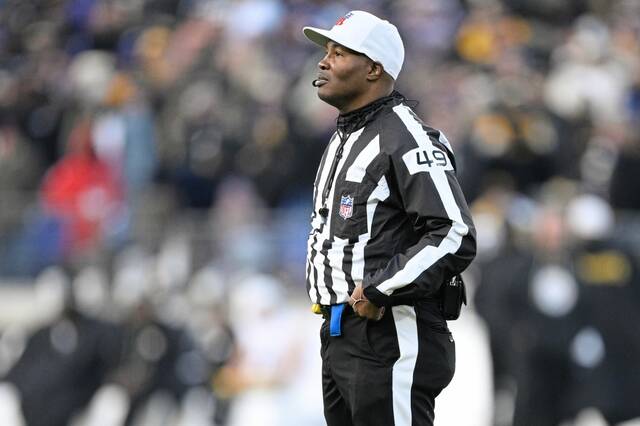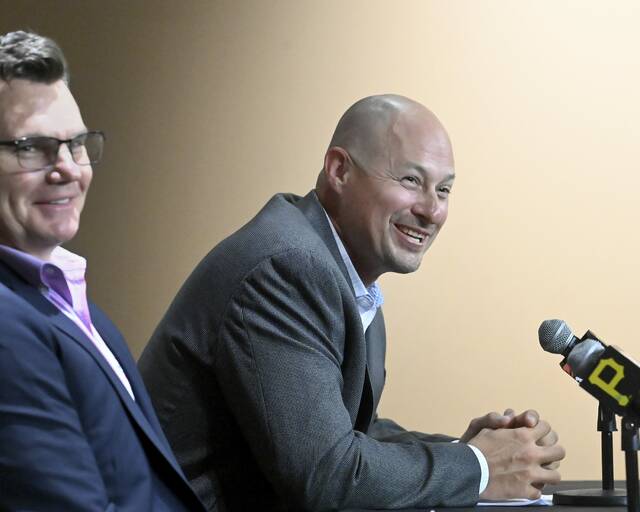An illustrated children’s biography of Pittsburgh Pirates legend Roberto Clemente is back on shelves in Florida’s Duval County Public Schools after being reviewed and approved for use in classrooms and libraries.
The school district said in a news release that its certified reading specialists are in the process of reviewing more than 1.6 million book titles for appropriateness, in order to comply with Florida legislation passed last year. District officials received national criticism after the book was pulled earlier this year.
The district said it is reviewing books to make sure they are free of pornography; instruction on sexual orientation or gender identity in kindergarten through third grade; and discrimination “in such a way that an individual, by virtue of his or her race, color, sex or national origin, is inherently racist or oppressive, whether consciously or unconsciously.”
“Roberto Clemente: The Pride of the Pittsburgh Pirates,” a 2005 book by Dormont’s Jonah Winter that was illustrated by Raúl Colón, is one of about 7,000 titles that had been reviewed and approved for use as of Monday, the district said.
A blurb for Winter’s book on Clemente framed the story this way: “As a right-fielder for the Pittsburgh Pirates, (Clemente) fought tough opponents — and even tougher racism — but with his unreal catches and swift feet, he earned the nickname, ‘The Great One.’”
“He led the Pirates to two World Series, hit 3,000 hits and was the first Latino to be inducted into the Hall of Fame,” the blurb added. “But it wasn’t just baseball that made Clemente legendary — he was also a humanitarian dedicated to improving the lives of others.”
The district said it acquired the book in 2021 along with nearly 180 others in Perfection Learning’s Essential Voices Collection “to increase (its) diversity of writers, characters, topics and viewpoints in our classroom libraries.”
“Since (Duvall County Public Schools Superintendent) Dr. (Diana) Greene arrived in 2018, the district has invested more than $1 million in classroom books from diverse authors and about diverse groups of people. Our goal was — and continues to be — to put books in the hands of children in which they can see themselves and learn from a broad array of perspectives,” district spokespeople Tracy Pierce and Laureen Ricks wrote in a news release.
“What that now means is that we have thousands of titles that we must review to ensure our teachers do not unintentionally violate Florida Statutes,” Pierce and Ricks wrote.
Of the Essential Voices book titles, the district said it sent 105 to classrooms last fall and returned 47 others that it said it didn’t order or weren’t appropriate for elementary-aged children. Another 27 titles, including Winter’s Clemente book and a book about the late slugger Hank Aaron, were held back for further review.
In addition to placing the Essential Voices books about Clemente and Aaron on school shelves, Pierce and Ricks wrote that the district “already had multiple titles in classroom libraries and media centers about these individuals, as well as dozens of books about Martin Luther King Jr., Rosa Parks and other icons of the Civil Rights movement.”
In an interview earlier this month, Winter, 60, said he never imagined when he wrote the book now almost two decades ago that it would someday find itself at the center of controversy.
“I would have hoped that, in the 21st century, there would be nothing controversial about a book about Roberto Clemente, the greatest all-around baseball player who ever lived and a true humanitarian,” Winter said at the time.
When reached by email Thursday morning, Winter said he was pleased to see the Clemente book returned to at least some bookshelves in Duval County Public Schools, but equated the district’s book review and the broader Florida legislation to a book ban. He points blame in the direction of Florida Republican Gov. Ron DeSantis.
“The only reason the two baseball books were put back on shelves (for older children) is because of the big media stink that was made over this,” Winter said.
“DeSantis’ book-banning is politically motivated, meant to score points with his base and bolster his national image — and the un-banning of the two most publicized banned books was also politically motivated. It’s called damage control,” he said.











